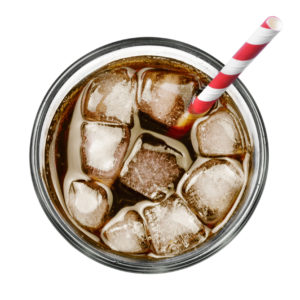 Being wrong is tough to admit. We’ve all been there. But sometimes denying missteps can have major consequences, especially when cholesterol is involved.
Being wrong is tough to admit. We’ve all been there. But sometimes denying missteps can have major consequences, especially when cholesterol is involved.
The old advice is that animal food products, like eggs and meat, can lead to high cholesterol. In fact, during the 80s and 90s, virtually all types of dietary fat were outlawed for the sake of heart health. The result: replace fat with sugar.
Advertisement
Fast forward a few decades and heart health hasn’t really improved. One could easily argue that it’s in worse shape now. As things turn out, it wasn’t really dietary fat or cholesterol that was causing the high cholesterol and heart disease epidemic.
Instead, the stuff that wreaks havoc on triglycerides and cholesterol is added sugar. And new research is showing that sugar-sweetened beverages are a major threat.
The research, published in the Journal of the American Heart Association, found that drinking more than one 12-ounce (a standard-sized can) serving of a sugar-sweetened beverage per day could yield dangerous results for cardiovascular health.
Drinking more than one of these beverages per day was associated with 53% higher odds of high triglycerides and 98% chance of having low “good” HDL cholesterol. HDL cholesterol is a type of cholesterol that promotes better circulation and a healthy heart.
How can this be? Research over the past number of years has largely shown that dietary cholesterol and saturated fat—the stuff in eggs and meat—has a “neutral” effect in the body.
This means it just kind of floats around in the bloodstream without any real harm or benefit.
Advertisement
Sugar, on the other hand, creates a dense, pebble-like form of LDL cholesterol that floats around and accumulates in arterial walls to form the “plaque” you often hear about. It can lead to atherosclerosis, high blood pressure, heart disease, and more.
If your cholesterol management plan focuses on fat, you might want to readjust your approach. Drinking sugar-sweetened beverages like soda, sweet tea, and more could be the reason your efforts have been unsuccessful. Cutting out other added sugars may also help.
Alternatives to these beverages include adding a bit of 100% fruit juice to seltzers, herbal tea, coffee, or plain, old-fashioned water.
